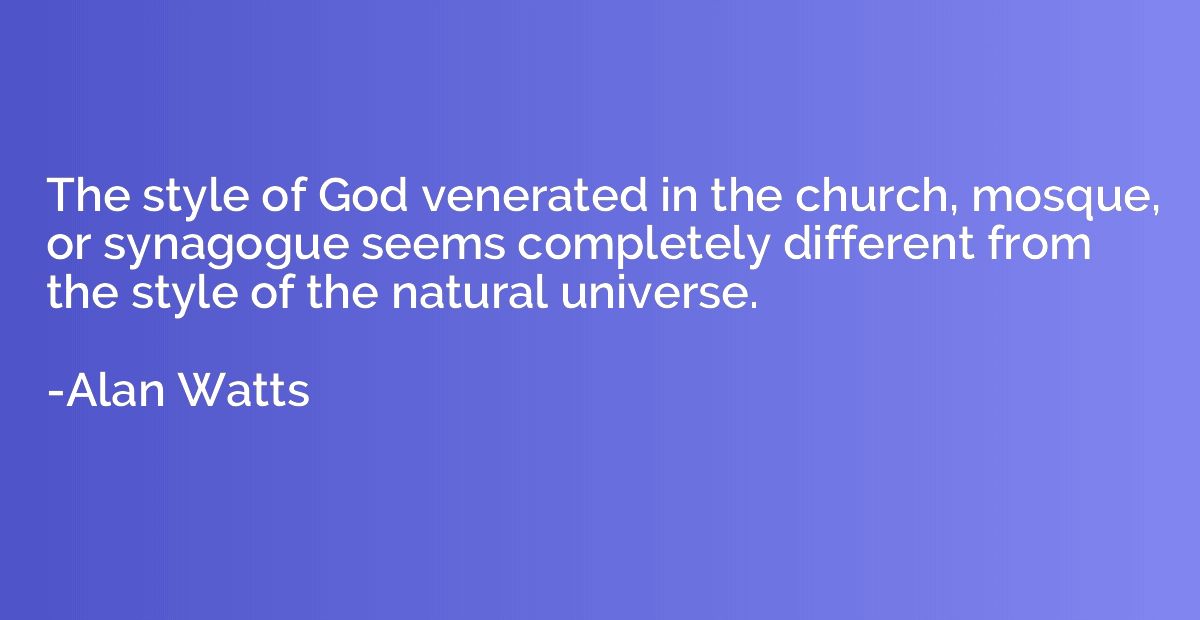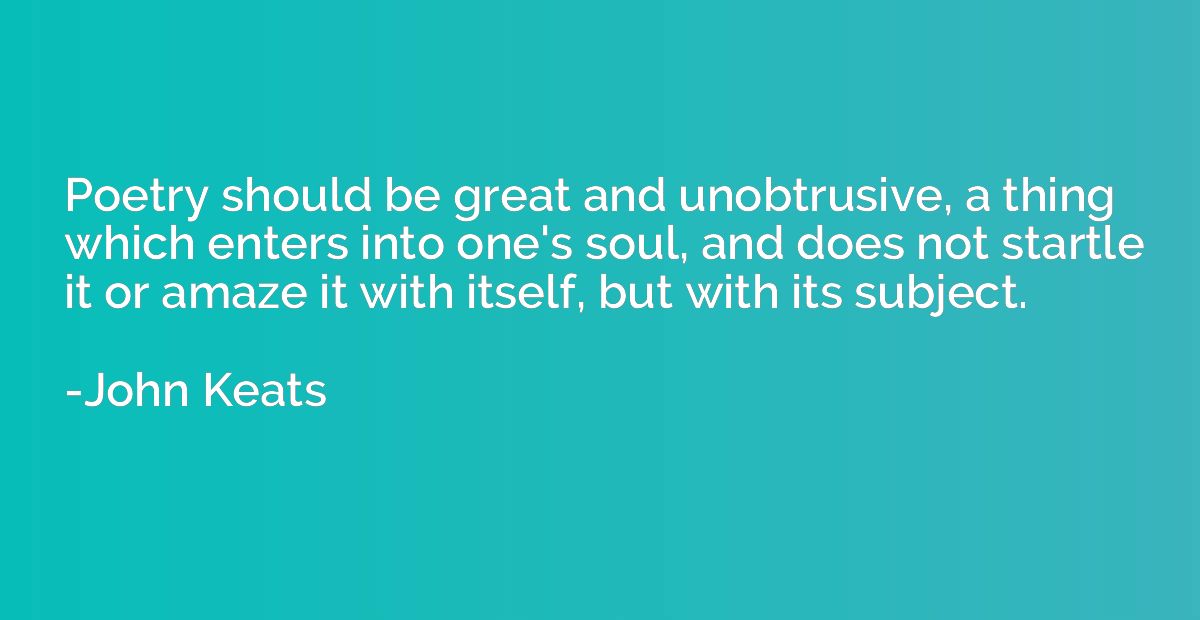Quote by Alan Watts
The style of God venerated in the church, mosque, or synagogue seems completely different from the style of the natural universe.

Summary
This quote suggests that the perceived style or manner in which God is worshipped within religious institutions such as churches, mosques, or synagogues, appears vastly dissimilar from the style observed in the natural universe. It highlights the contrast between the structured rituals and practices of organized religion and the awe-inspiring, seemingly spontaneous processes found in nature. The quote implies that there may be a disconnect between the human interpretation and representation of God and the unfathomable grandeur and complexity of the natural world.
Topics
God
By Alan Watts














